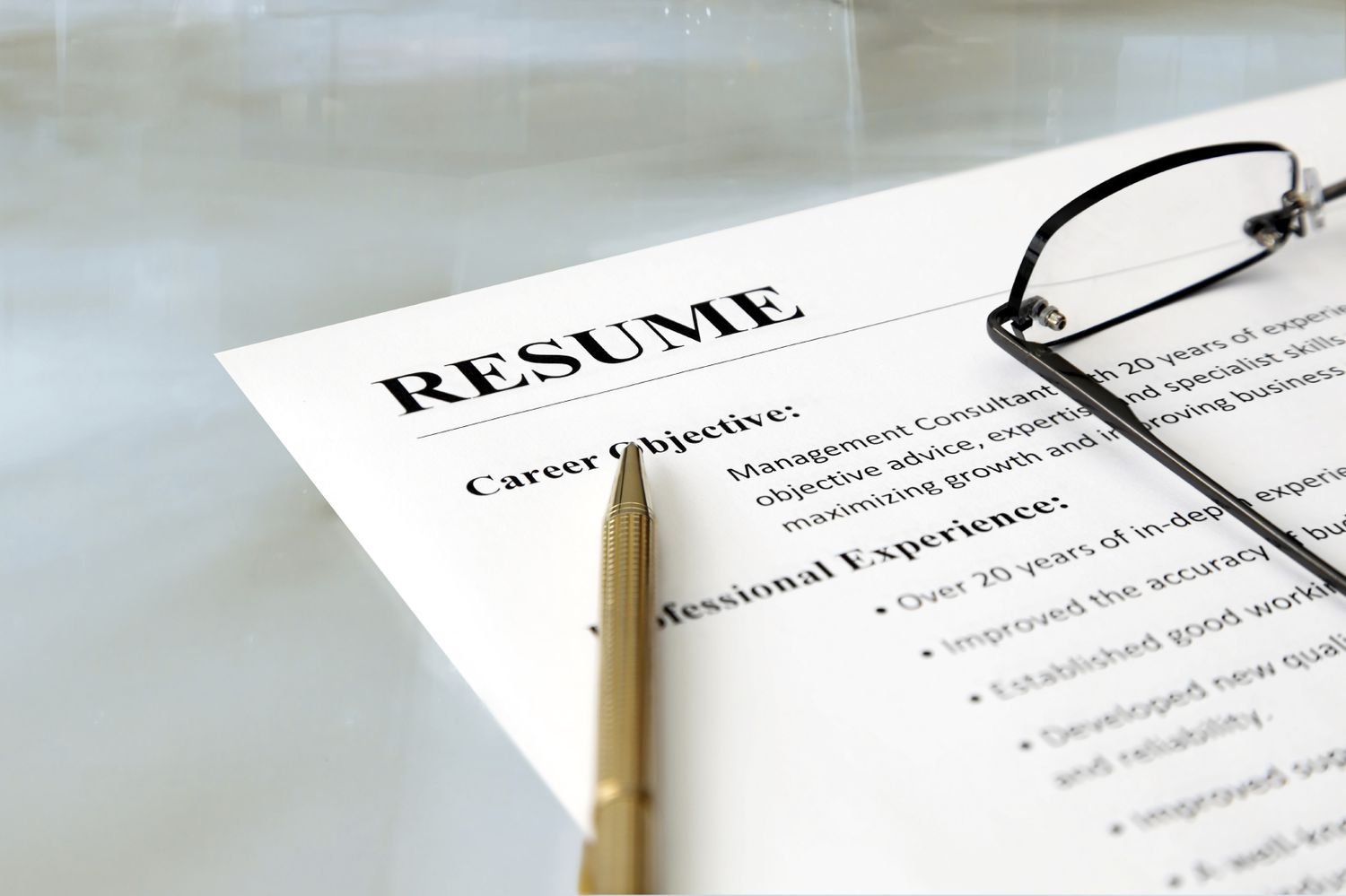Resume mistakes are just a nightmare to those seeking employment, yet they happen more than most people can think. Sometimes it takes a single error or a simple mistake for one not to get a particular job he desires.
In fact, one recent study showed that the astonishing number of resumes has some critical mistakes inside, which at once exclude those candidates from having the great possibility of being granted an interview at least. So, what is included in such common resume mistakes, and how will you avoid them?
It is more than just a listing of your skills and experiences; your resume is your first impression, an opportunity to showcase your personality, and it’s your golden ticket to being noticed by your future employer.
But with this one document having so much to do with everything, it surprises how many critical mistakes job seekers make that will cost them their jobs.
In this article, we look at some of the most common resume mistakes and how to avoid them, with expert tips, so as to make you stand out from the crowd and get that dream job.
Table of contents
- What Are Resume Mistakes?
- What Are The Common Resume Mistakes That Could Cost You Jobs
- 1. Sending in a Resume That Won’t Get Past an ATS
- 2. Spelling And Grammatical Errors
- 3. Sending In A Resume Not Targeted For The Job Description
- 4. Missing Relevant Skills and Experience
- 5. Having a Resume Objective Instead of a Summary
- 6. Writing a Resume that Lacks Important Keywords
- 7. Making Your Resume Too Lengthy and Overwhelming
- 8. Including The Salary Requirements
- 9. Putting Incorrect Contact Information
- 10. Not Including Quantifiable Achievements
- Frequently Asked Questions
- Conclusion
- References
- Recommendations
What Are Resume Mistakes?
Resume mistakes are errors or oversights that one may make while building up or writing one’s resume. These mistakes hurt your chances of getting noticed by employers and landing a job.
Think of your resume like the first impression you make. When you meet a person for the first time, you will probably want to dress nice, be polite, and seem interested in him or her.
It is the same thing with a resume. This is your chance to introduce yourself to potential employers and show them why you are the best fit for the job. But if there are mistakes on your resume, it’s like showing up in sloppy clothes to a job interview and having a bad attitude-instant turnoff!
Read Also – Can I Put My Certificates of Completion Under Skills on Reddit?
What Are The Common Resume Mistakes That Could Cost You Jobs
Now, we are going to walk you through the 12 most common resume mistakes and how to fix them, so you can stand out and make an impact with every application.
1. Sending in a Resume That Won’t Get Past an ATS
Before your resume even gets in front of a recruiter, it has to pass the ATS test.
The ATS scans your resume for keywords and parameters set by the employer. If your resume isn’t optimized for ATS, it will be rejected, despite all your qualifications.
If you have the right qualifications but are not getting responses, that is probably a sign that the ATS is blocking your application.
How to Fix This
- Choose a professional-looking format that is easy to read and navigate.
- Use relevant headings and bullet points: Highlight key information effectively.
- View yourself in a professional light where there is no use of font styles and sizes all over the place.
- Present work experience either in chronological or functional format.
2. Spelling And Grammatical Errors
Spelling and grammatical errors are probably one of the most made errors in a resume that should be avoided. Typos look unappealing to a recruiter and indicate sloppiness.
Writing flawlessly in a competitive job market can help make a good impression.
How to Fix This
- Before sending in your resume, make sure to proofread for spelling and grammatical errors.
- Use the spell-check but also have someone else review your resume for a different set of eyes.
- Proper grammar and spelling show your attention to detail and professionalism.
- Go the extra mile to perfection and make sure there are no mistakes on your resume.
3. Sending In A Resume Not Targeted For The Job Description
Tailor your resume to match the requirements for a particular job. It will be a very big mistake to send exactly the same application to each and every different position.
Every time you submit an application, make sure that your resume for that particular job demonstrates why you would be suited for that particular position. Always retain a pristine, untouched original copy of your resume, updating your personal customized copies with this.
How to Fix This
- Re-analyze the job description in as much detail as possible and redo your resume, emphasizing relevant skills and experiences that fit the job specifications.
- Incorporate some of the keywords from the job posting to make sure your resume gets through the ATS with ease.
- Emphasize your accomplishments and experiences that relate directly to the job role, as this can increase your chances of being noticed by a recruiter significantly.
- Remember, an adjusted resume demonstrates your interest and commitment to a position, placing you before other applicants.
Also Read – Documents Required for an NHS Nursing Job: A Complete Guide
4. Missing Relevant Skills and Experience
Recruiters and ATS tools all focus on one thing: how well your skills and experience fit the requirements of the job. And most job seekers fail in being specific as to how their relevant skills, qualifications, and experience will apply to the job they seek.
For example, a job that calls for proficiency in React.js and Node.js would be underwhelmed by an applicant who describes themselves blandly as a “Full-stack developer with a degree in Software Engineering”.
Not naming them even for those of a talented status stands to cost the opportunity. Be specific and clear-cut in the message, as in the case of, “Developed scalable applications using React.js along with Node.js by enhancing system efficiency by 30%.”
In this approach here, not just relevance but proving the impact based on skills and experience is very well demarcated.
How to Fix This
- Highlight your most relevant skills and achievements in your resume. Make sure to use bullet points, as they can be easily skimmed and understood.
- Instead of listing skills, try to provide examples of when you have utilized them in jobs. If applicable, use numbers and metrics for accomplishments.
5. Having a Resume Objective Instead of a Summary
The reason resume objectives have fallen out of favor is that they focus on what you want out of a job rather than what you bring to the table. On the other hand, a tailored resume summary gets the attention of the reader by highlighting your key qualifications, achievements, and alignment to the role.
Think of this as your elevator pitch: snappy, short, and one that can get the recruiters going right from the word go. Without one, you will miss a fantastic chance to create that ace first impression.
How to Fix This
- Re-evaluate your skills and qualifications and how well you actually match up with the position you applied for.
- Select a few achievements relevant to this job; quantify them whenever possible to show expertise.
- Open with an active power verb that describes your professional identity-e.g., “results-driven project manager.”
- Include achievements in numbers relevant to the job.
- With your summary, express your personal goal that shows your interest to contribute and grow with the company.
6. Writing a Resume that Lacks Important Keywords
The recruiters feed the ATS with some role-specific keywords that help it identify candidates matching the job description perfectly. Your resume needs to have those exact keywords to pass through the ATS.
These could relate to qualifications required, skills, tools, and experience-and even location-really, anything that’s mentioned in the job description.
By placing these keywords strategically in your resume, you have a better chance of getting through the ATS and in front of human eyes. Just be sure to use them naturally and contextually-and not forced.
How to Fix This
- Read through the job description for the required skills, experiences, and qualifications.
- Use them in your summary, work history, and skills section-without overdoing it.
- Avoid overloading your resume with unnecessary details or awkwardly placed terms.
- Add variety and cover related terms by using synonyms for your keywords.
7. Making Your Resume Too Lengthy and Overwhelming
Recruiters cannot afford to take much time with some long résumés while hunting for other candidates with preferred qualifications. Therefore, your resume must not go over two pages in length.
What that simply means is be concise and go right to what’s important; hence, kill those long, redundant paragraphs, besides other stuff, that distract from your fundamental strengths.
Instead, bring your best qualifications and experiences to the forefront. A targeted, sharp resume makes it easy for recruiters to see at a glance why you are fit for the job.
How to Fix This
- Highlight accomplishments, skills, and experiences directly relevant to the job description.
- Demonstrate what you delivered in previous positions. Did you boost sales? Simplify some process? When possible, put numbers on it.
- Do not exceed two pages. Each section, every line, has to bring value to your candidature.
- Use clear and concise language. Bullet points are your friend!
- Avoid using pronouns. Instead of saying “I managed a diverse portfolio,” simply write, “Managed a diverse portfolio of clients.”
Read Also – Documents Required for an NHS Nursing Job: A Complete Guide
8. Including The Salary Requirements
Adding salary requirements in your resume can hurt your chances right out of the gate.
If that figure is larger than the one the company has budgeted, they may eliminate you from their list of candidates before they even consider your qualifications.
If it is too low, you are underquoting yourself and will be losing money in the process. The best thing is to avoid talking about salary too early.
Not mentioning salary upfront leaves the discussion open for later stages of the process. By that time, the recruiter will have seen the value you bring in with your skills and expertise and is better placed to negotiate a salary that reflects your worth.
How to Fix This
- The easiest way out is to simply not add the requirement for salary. There is no need to add a salary section; this way, you will not have the drawbacks mentioned above.
- Waiting for the interview allows for a more informed discussion. You can research salary ranges beforehand and be prepared to negotiate based on your qualifications and the employer’s offer.
- If taking a salary completely off feels too uneasy, consider putting a broad range at the bottom of your resume. Frame it as “Salary Expectations: Negotiable within the [insert range].” It shows you understand that salary is a factor, yet doesn’t bind you into an exact amount.
9. Putting Incorrect Contact Information
Everything you do in building a really good resume becomes meaningless if a recruiter can’t reach you.
Be the best candidate, but just one typo of your phone number or email, and you will never get that call or email for the interview.
It is annoying and an avoidable mistake; that was supposed to fetch you the opportunity that you are striving for. Re-checking your contact information is as necessary as any other thing in your resume.
You don’t create any unwanted complications down the line that might stand in the way of your dream job, since your contact information is valid and available.
How to Fix This
- Check for spelling or typing errors in your contact information. Spell out your full name, professional email address, and current phone number with a clear country code, if applicable.
- Use a professional email address, which you also check regularly. Avoid using outdated or unprofessional email addresses.
- A strong LinkedIn profile can be a great tool in your job search. You can insert the link of your profile in your resume-just make sure it is updated to reflect your experience and skills. Remember to shorten your LinkedIn URL for a cleaner look.
10. Not Including Quantifiable Achievements
Results-oriented applicants are what recruiters are always in search of. Simply listing your responsibilities is a big mistake and that isn’t enough.
By including quantifiable achievements, you display the value proposition and tell yourself from other applicants.
How to Fix This
- Mention your achievements with specific metrics and data whenever possible.
- Don’t just provide figures; explain what those figures mean. How did your accomplishments impact the success of the company?
- Quantifiable achievements aren’t limited to sales or finance. Use numbers to showcase your impact in any role.
Also Read – Can I Put My Certificates of Completion Under Skills on Reddit?
Frequently Asked Questions
It is common and acceptable to include only about 10 to 15 years of work experience in your work history. Beyond this, work experiences can be summarized or are completely left out.
Commonly, it’s one or two pages, as anything more risks overwhelming the reader.
No, unless directly relevant to the job, it’s best to leave off hobbies and personal interests. Your resume needs to be all about your professional experiences and skills.
Of course! Even the most skilled of writers allow typos and grammatical errors to slip through. You want to make sure multiple people have looked at your resume for errors, including proofreading numerous times yourself.
Conclusion
Resume mistakes can stand in the way of finding a job. A lot of these problems can be avoided if you just know to look for them. Remember, many times your resume is the first impression-so make it count.
Check for errors, use it tailored to the job, and actually point out relevant skills. This will provide you with a greater chance of landing that perfect job.
References
- www.indeed.com – 16 Resume Mistakes and How To Avoid Them (With Helpful Tips)
- topresume.com – The Top 10 Resume Mistakes That Could Cost You the Job






